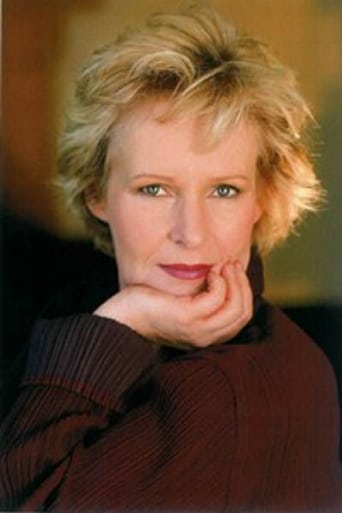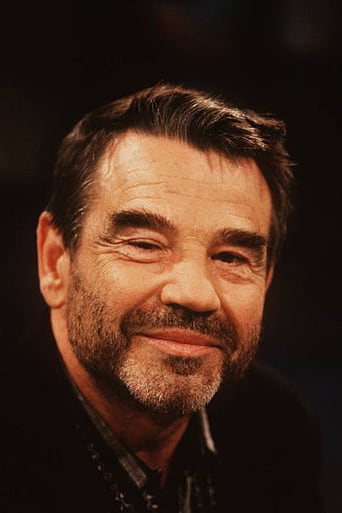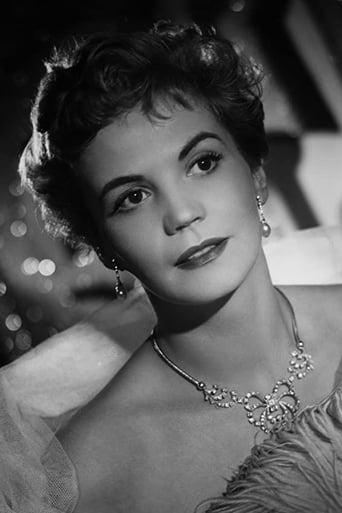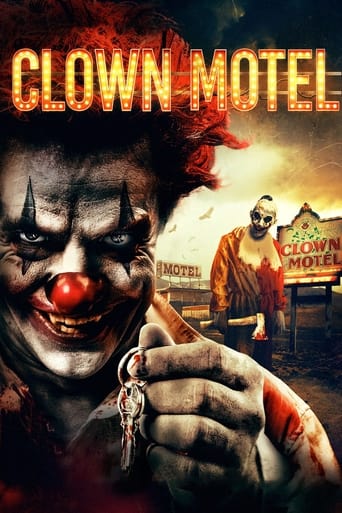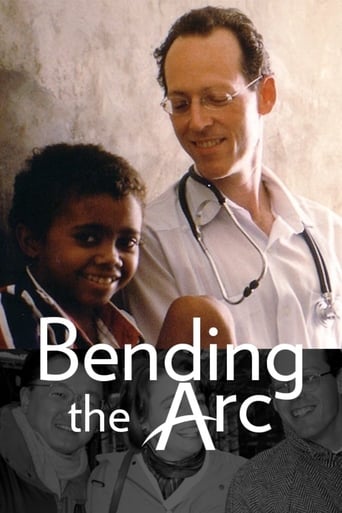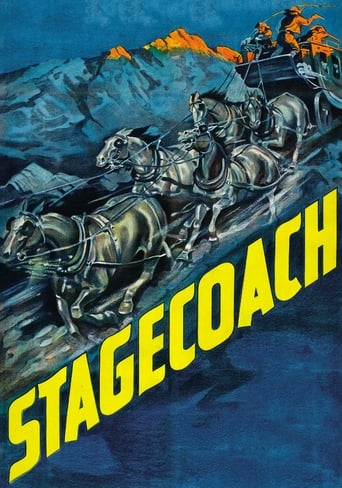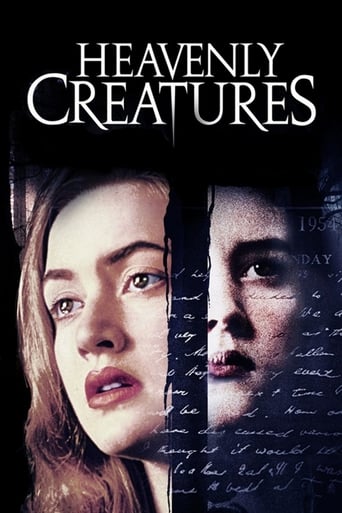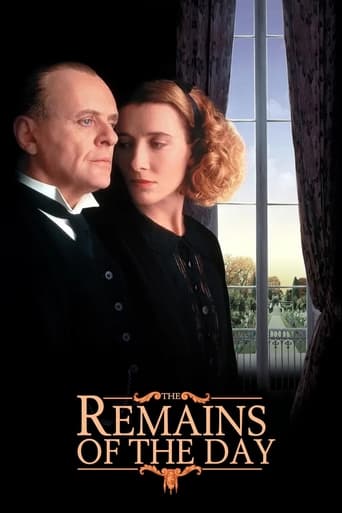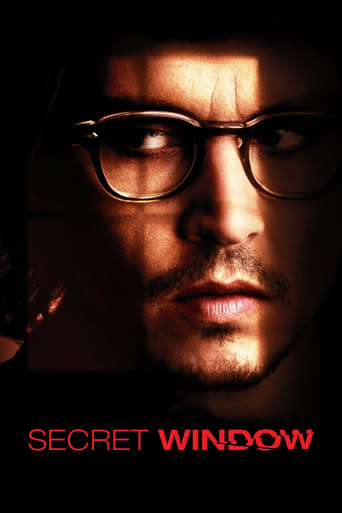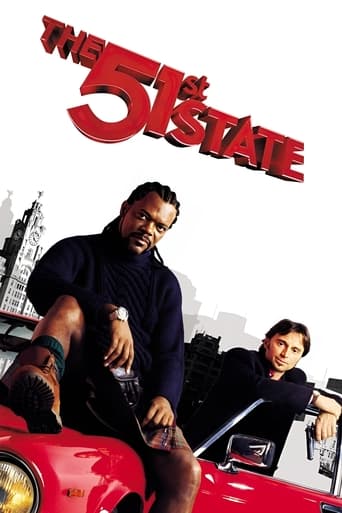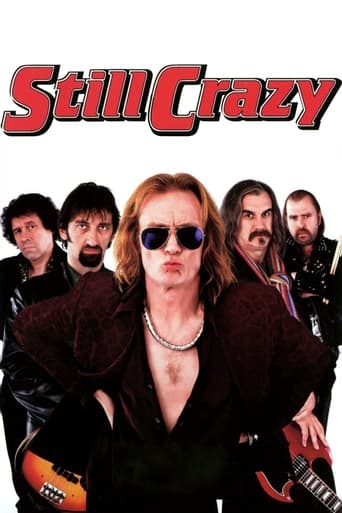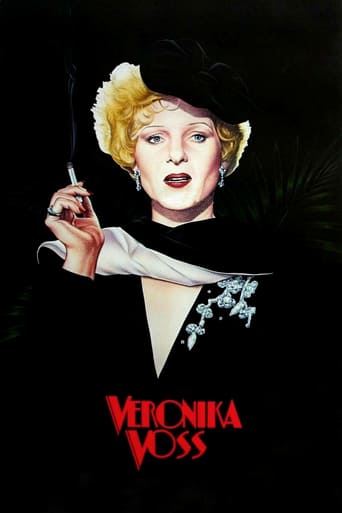
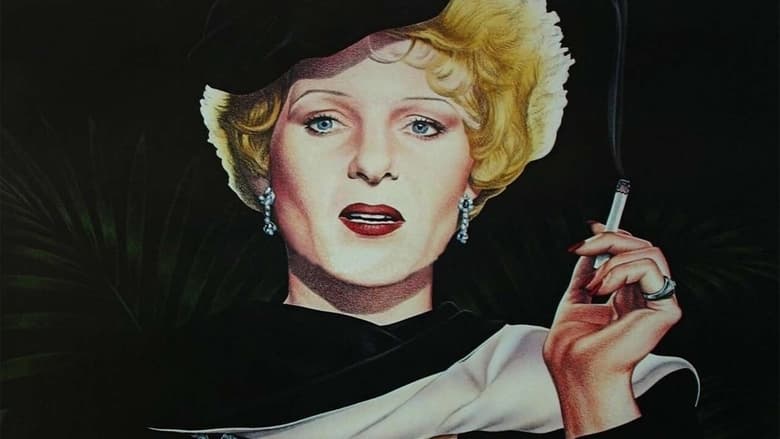
Veronika Voss (1982)
In Munich 1955, German film star Veronika Voss becomes a drug addict at the mercy of corrupt Dr. Marianne Katz, who keeps her supplied with morphine. After meeting sports writer Robert Krohn, Veronika begins to dream of a return to stardom. As the couple's relationship escalates in intensity, Veronika begins seriously planning her return to the screen -- only to realize how debilitated she has become through her drug habit.
Watch Trailer
Cast


Similar titles
Reviews
Fassbinder's penultimate film, a Golden Berlin Bear winner in 1982, VERONIKA VOSS is a strikingly- looking black-and-white art-house vehicle loosely blueprinted on the tragic real life story of German film star Sybille Schmitz (VAMPYR 1932, MASTER OF THE WORLD 1934, TITANIC 1943).The time-line is set in 1955, post-WWII Munich, Veronika Voss (Zech) is an over-the-hill middle- aged actress, her career has remained stagnant for years, divorced by her screenwriter husband Max (Mueller-Stahl), now she lives in a psychiatric clinic governed by Dr. Marianne Katz (Düringer) and her assistant Josefa (Schade), where in Schmitz's story, they are a lesbian couple. They proffer her morphine for her addiction in exchange of her estate and fortune, it is a shady racket in broad daylight which ensnares many pain-afflicting addicts, once their clients are no longer affordable, they will discard them like insignificant pawns.Veronika is very close to this peril, will her be saved? The supposed knight in shining amour is Robert Krohn (Thate), a short, ordinary-looking sports journalist in his mid-40s, who has a stable girlfriend Henriette (Froboess) and doesn't even recognise her when they first meet during a downpour in the night, maybe this is a major reason why Veronika finds him special, deems him as someone who can simply treat her as an attractive woman, without all the celebrity halos. Their rendezvous evade any surreptitious pretences, Robert is fairly open about that and once Veronika even asks for his escort to her estate in spite of Henriette's presence. Veronika is a damaged good already, pompous, insecure and self-seeking, sees Robert as her last straw to revitalise her life and plans a dramatic return to the limelight, yet, all will fall flat since her Achilles heel is firmly clutched by the evil doctors, she cannot be saved, it is physically impossible, a fatalistic manifesto to those incorrigibly poisoned, corrupted and weak-minded. Zech manifests a telling facet of Veronika's jittery unstableness, holds great poise while inside she is beyond salvation.Thate's Robert, a common victim of an everyman's heroic fantasy, to fall for a damsel-in-distress, and rescues her from whatever evil force torments her. Only in Fassbinder's book, the reality is too gloom to conjure up a gratifying victory, Robert has to endure a bigger loss other than Veronika, Thate's performance brings about quite a subtle poignancy as the story goes into a more sinister twist. Annemarie Düringer, strikes up a whiff of frigid viciousness underneath Dr. Katz's usual professional persona, so is Froboess, her Henriette is the only innocent person in it, piqued by the blatant affair, but she doesn't counteract with resent or jealousy, on the contrary, she risks herself in Robert's plan to expose Dr. Katz's seedy business, unaware of the lurking danger. Innocence simply cannot reside in this corrupt world.Fassbinder's sleight-of-hand with lights and shadows infuses a nostalgic glamour to its texture; many a time, the camera moves like a serpentine, observing behind glasses like a voyeur, especially in the brightly white psychiatric clinic, extremely inhuman as if all the human trace has been sterilised altogether.As the second part of Fassbinder's BRD Trilogy, THE MARRIAGE OF MARIA BRAUN (1979) is the first one, and LOLA (1981) released one-year earlier than VERONIKA VOSS, is captioned as the third chapter, the film is a pessimistic probe into WWII residual affected on this one particular specimen, Veronika chooses to forget about the past and move on (it is implied she was in an affair with Goebbels), numbs herself with indulgence on drugs, one may argue that she is bringing all the trouble on herself, that's why, the ending is so cold and despondent, we cannot pretend nothing has happened, there must be consequences for those who are participated, whether actively or passively.
Veronika Voss is a movie in love with movies, and also a movie where its maker, RW Fassbinder, continues on his life/career-long obsession with capturing the essence of melodrama on screen. He might have come closest with this story, since it allows him to make it a "movie-movie", so to speak. I saw some echoes, mayhap, of Sunset Blvd and even Ed Wood, and that may just be attributable to it being a true story (more or less as one would gather from this cinema "tribute" to Sybille Schmitz), but maybe too in how fascinated Fassbinder is with glamor and decadence, decay and self-absorption, the mental faculties to be caring and gentle (Robert) and with a streak that suggests the very essence of everything arguably wrong in Germans (the doctors who keep Veronika quasi-captive, hooking her onto morphine). It's a glorious, multi-faceted critique of a time and place, of a 1950s Germany that had moved on from the war only relatively - the madness could, and would, continue on in ways that involve some subtext, and some things so out in the open it's hard to stand it.It's ostensibly, in its "plot" sense, about a sports reporter for a paper, mild-mannered Robert, who on a bus one night helps shield the movie star (or once real "STAR" in quotes) Veronika Voss (very great Rosel Zech). She's interested in him, convinces him to buy her an item for $300, and he's interested too - if only for how she's not really, how to say, 'balanced', and we soon see that she is in fact under medical care of an unusual sort by Dr. Marianne Katz. That, and the involvement soon after with Robert's girlfriend in trying to figure out how to get Veronika real help, of getting the police involved as well, makes up the bulk of the rest of the story. We also get a subplot of sorts with an old couple (one look at the arm, numbers tattooed, is all that's needed to fill the pieces), but Fassbinder isn't interested in plot, per-say. He's interested in how to move it, how to transgress a simple melodrama into something more lively, profound and moving.He's also invested in creating this look for the film that is at times expressionistic of a 1930s tone, of the dark corners and streets and moments of a film-noir, and then sudden blasts of bright light thrown in (an early scene has a bunch of lights intentionally blasting at the camera lens, a perfect homage to cinema itself), with the glamor of a expensive restaurant contrasted with the white walls of Katz's quarters. Fassbinder wants us to see this as a "movie" in the sense of the usage of crafty dissolves and fades, or those wipes that are precisely artificial, but at the same time not lose sight of the drama at hand. Part of this is the acting, which is by many of Fassbinder's regulars- not least of which Armin Mueller-Stahl in a terrific, quiet but haunted supporting role as a screenwriter and ex-husband of Veroika's who says a great deal in one look to Robert down a hallway while a scene is being shot; or Günther Kaufmann, perhaps the one loose link to the previous film in the "BDR trilogy" as a G.I. who adds a curiously affecting song he sings to himself in the middle of a dramatic scene between the doctor and Veronika.Another part of this are just many, many great scenes and moments put together. Things like when the doctors start to laugh after one of them says around Veronika "It's not like we're trying to kill you," with it bordering on an Austin Powers level of absurdity, if it weren't for it being so cold a moment of satire. Or how we see Robert and Veronika contrasted, brilliantly by cinematographer Schwarzenberger, with Robert being relatively normally lit while Veronika's face gets slightly brighter with each cut-away as they talk at a table in the restaurant. Or how music is used throughout, the collection of tunes from the radio mixing with the actual score, creating a sense of illusion and madness that gets us close to the psyche of Veronika Voss while still maintaining the homage-quality of the picture. And, most notably for me, are the closing scenes, where, without revealing too much (though it may be hard in just revealing it's a melodrama at the core), Veronika dreams of a farewell party, that may be surreal enough to be a dream, but in that first moment of singing at the piano who is to say?It's such a stroke of beautiful film-making all around, from the mix of sets and real locations to the sense of history captured, of the given theme of fame being so easy to disintegrate, of the melancholic sense of cinema that bears on our lives while civilization crumbles and gets back up again. Maybe this is just what I took away from it, but it's all a credit to Fassbinder's dedication to his art form - which, soon after this, took his own life from a similar excess to that of his character here. Moreover, it's one of the superb films of its country.
Veronika Voss (1982) was the final part of director Rainer Werner Fassbinder's celebrated trilogy of films that looked specifically at the period following the end of the Second World War, and in particular, the socio-political and economic re-birth of Germany following the Wirtschaftswunder. All three films in the trilogy look at these situations through the eyes of a strong-willed, arrogant and determined female-protagonist who strives against all odds to achieve the kind of lifestyle that she has always desired, but, once she does, finds herself still feeling empty and lacking in spirit. The characters in these films come to represent Fassbinder's own feelings about the Germany of this particular period, whilst simultaneously acting as an allegorical portrayal and deeper interpretation of the qualities and characteristics of the country itself.The first film in this loose, thematic trilogy, The Marriage of Maria Braun (1979), looked at the ideas of determination and the triumph of will that would go towards rebuilding Germany from the ashes of the Second World War through the eyes of resolute young woman willing to push her own emotional stability to breaking point in order to secure a better future for her and her incarcerated husband. The second film, Lola (1981), which took its inspiration from Josef von Sternberg's The Blue Angel (1930), looked at how that same sense of opportunism, greed and determination can be used for more selfish reasons, sowing the seeds of tragedy and eventual air of blind exploitation that will come full circle here. Veronika Voss exists in very much the same cinematic universe as the two other films that would come to form the backbone of what would eventually become known "the BRD trilogy"; though Fassbinder himself had often talked of plans to make more films in a similar vein - analysing post-war German history through to the present day - but was unable to continue the theme due to his untimely death in June of 1982.It would have been interesting to see where Fassbinder would have taken these continuing themes following Veronika Voss, which ends on a perfect note of heartbreaking cynicism, very much in tune with the Germany, and indeed, the world itself at the end of the 1970's; representing in a sense the same emotional landscape of cold desperation and political confusion presented in his more personal, contemporary-set films of the same era, such as In a Year of 13 Moons (1978) and The Third Generation (1979). Like those films, Veronika Voss continues Fassbinder's reputation as probably the greatest exploitation filmmaker who ever lived, in the sense of the crushing despair and continual disappointment that befalls his various characters whenever they put their trust in the hands of others. This can be seen as far back as the masterful Fox and his Friends (1975) as well as the underrated Mother Kusters' Trip to Heaven (1976), with Veronika Voss continuing the themes of those particular films, but with the greater sense of visual experimentation and bold use of mise-en-scene that would be found in his last few films following The Marriage of Maria Braun.Whereas that film employed a much grittier use of production design and almost unglamorous use of cinematography - the complete antithesis to the subsequent Lola and its gorgeous kaleidoscope of luminous colours and expressive use of shadow - Veronika Voss is presented in cold, stark, gorgeously textured black and white. The use of photography combined with the costume and production design not only give us a definite feel for the period in which the film is set, but also a great understanding of the moods of the characters and the atmosphere of the world in which they inhabit. It also allows Fassbinder and his cinematographer Xaver Schwarzenberger to draw parallels, not only to the 40's and 50's set Hollywood melodramas that have seemingly inspired the plot and use of character - I'm thinking specifically of references to Sunset Blvd (1950) - but also capturing the very iconic style of the early, pre-Second World War cinema of the UFA film studios, which plays an important part in Veronika's spiral into the pits of despair.Fassbinder incorporates other elements such as a romantic subplot and traces of a perhaps volatile love triangle with more elaborate references to detective fiction, cinema and the blurring of the past with the present. These stylistic devices help to keep the film moving with a brisk enough pace, while the continual use of confinement and claustrophobic camera angles that exaggerate how close, yet similarly disconnected the characters are from one another, help to convey the more hopeless and alienated aspects of Veronika's internal state-of-mind. Without question, this is one of Fassbinder's most interesting films; a bleak and bitter minor masterpiece that continues the themes and ideas behind The Marriage of Maria Braun and Lola, whilst also bringing to a close, in hindsight, a number of reoccurring themes familiar to anyone with a fondness for or interest in Fassbinder's life and work.Veronika Voss is intelligent and deeply emotional film-making rife with ideas that are still relevant, both socially and historically; such as the aforementioned allusions to the UFA film studios as well as Veronika's hinted affair with Joseph Goebbels and the broader, more controversial historical implications suggested therein. As with the majority of the Fassbinder's work, Veronika Voss is intense, evocative and unbelievably well acted - particularly by Rosel Zech, Himar Thate and Annemarie Düringer - though it is perhaps worth mentioning that the bleak arch of the narrative combined with the almost despairing allusions to the again aforementioned Sunset Blvd (and films of that ilk) may be a little too formidable or uninviting for some. Although Fassbinder would go on to produce one more film before his death, the dizzying and surreal adaptation of Genet's Querelle (1982), Veronika Voss - along with the other two films in the BRD trilogy - is a fitting testament to his enormous talent and under-appreciated genius.
The black & white cinematography is extremely elegant and in some scenes the light points shine as stars. Fassbinder adopts styles similar to those from the films where Veronika Voss could have acted if she existed, and leads the film to the end without much of his forced pedantism. Among the best scenes is one of the final sequences, in which Veronika dreams being again the center of the attentions (singing "Dreams are made of this"), and the continuous takes in her attempt to reestabilish her acting. Near its half, the film starts to lose the cohesion and some ways of development of the plot are wasted to arrive in a stupid and complacent ending.


